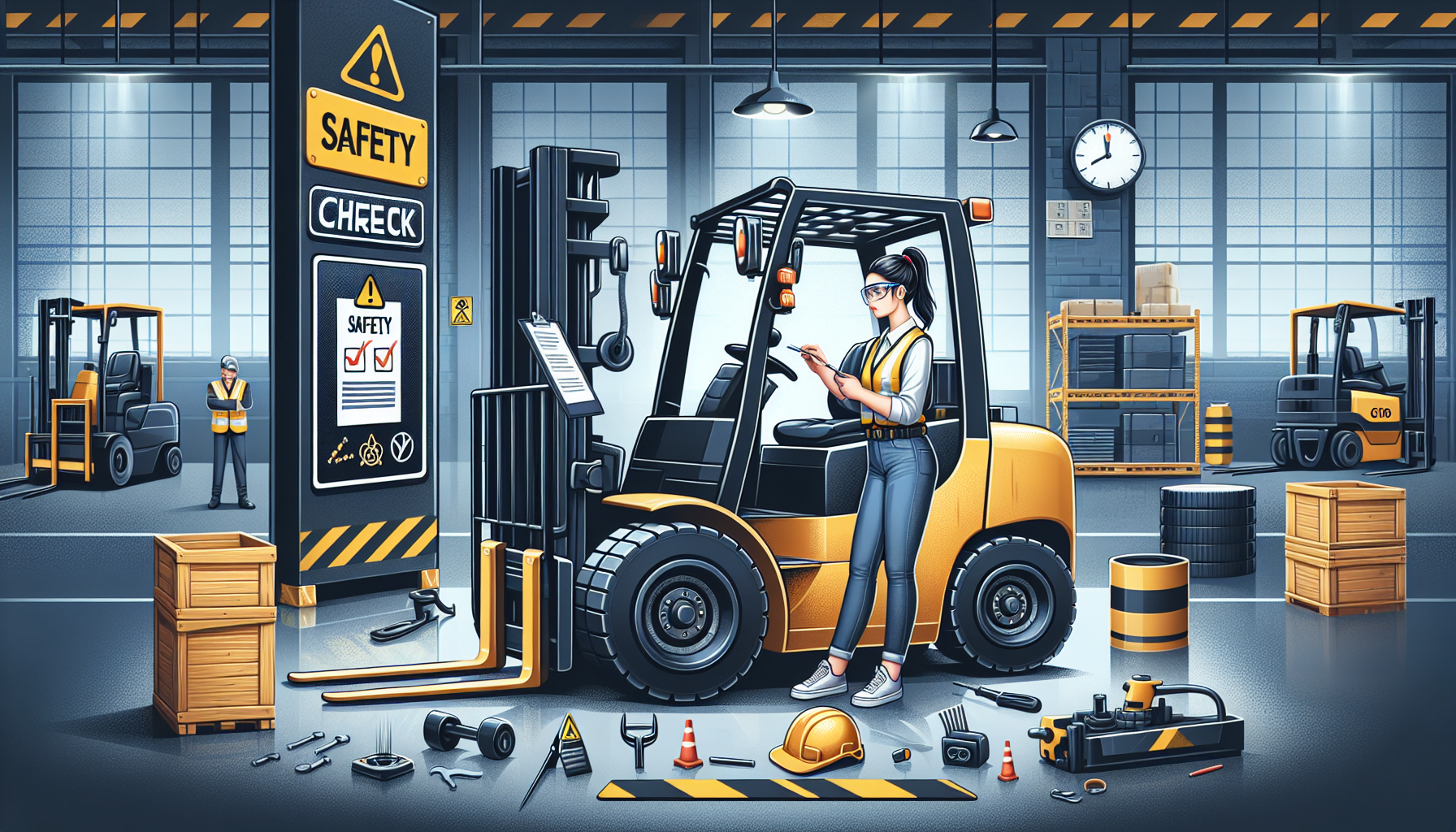Forklifts play a crucial role in warehouse operations, helping to move heavy loads and streamline processes. However, they can also pose significant risks if not used and maintained properly. Regular maintenance is essential to ensure forklifts are safe and functioning at their best. In this article, we will discuss the importance of regular maintenance and provide tips on how to improve forklift safety in your warehouse.
The Importance of Regular Forklift Maintenance
Regular maintenance is vital for a variety of reasons. Firstly, it ensures that forklifts are working efficiently, reducing the risk of breakdowns or malfunctions. By identifying and addressing potential issues early on, you can prevent more significant problems in the future.
Secondly, regular maintenance enhances forklift safety. Faulty equipment can lead to accidents, injuries, and damage to goods and infrastructure. By conducting routine inspections and servicing, you can identify any safety issues and address them promptly.
Additionally, regular maintenance extends the lifespan of your forklifts. By taking care of your equipment, you can avoid premature wear and tear, reducing the need for costly repairs or replacements.
Tips for Improving Forklift Safety through Regular Maintenance
Here are some essential tips to help you enhance forklift safety through regular maintenance:
- Create a Maintenance Schedule: Establish a routine maintenance schedule for each forklift in your warehouse. This should include regular checks, servicing, and inspections. Consider creating a digital calendar or using maintenance management software to help you stay organized and ensure no scheduled maintenance tasks are missed.
- Inspect Forklifts Daily: Before each shift, encourage operators to conduct a visual inspection of their forklifts. This includes checking for any signs of damage or wear, examining the tires, testing the brakes and lights, and ensuring the seat belts are functional. Any issues should be reported and addressed immediately.
- Train Staff on Maintenance Procedures: Provide thorough training on proper forklift maintenance procedures to your warehouse staff. This includes teaching them how to perform basic maintenance tasks and how to identify potential problems. Having knowledgeable staff can help prevent issues and promote a culture of safety within your warehouse.
- Follow Manufacturer’s Guidelines: Always refer to the forklift manufacturer’s guidelines and recommendations for maintenance. These guidelines will provide specific information on maintenance intervals, lubrication, filter replacements, and more. Adhering to these guidelines is crucial to keep your forklifts running safely and efficiently.
- Keep Detailed Maintenance Records: Maintain a record of all maintenance activities performed on each forklift. This includes dates, tasks performed, and any parts or components replaced. These records will help you track maintenance history, identify recurring issues, and provide documentation for any inspections or audits.
- Work with a Reliable Maintenance Service Provider: Consider partnering with a professional maintenance service provider to ensure your forklifts receive regular and thorough inspections and servicing. These experts can identify potential issues that may go unnoticed by your own staff and offer timely solutions.
In addition to these tips, it’s essential to promote a culture of safety within your warehouse. Encourage open communication about any safety concerns or issues and actively address them. Regularly review your safety protocols and policies to ensure they are up to date and effective.
HCO Innovations specializes in warehouse optimization solutions, including safety evaluations. They can help you identify and address any safety gaps in your warehouse operations. A thorough evaluation can provide valuable insights and recommendations for further improving forklift safety and overall warehouse efficiency.
By prioritizing regular forklift maintenance and implementing the tips mentioned in this article, you can significantly enhance forklift safety within your warehouse. Not only will this protect your employees and assets, but it will also improve overall productivity and efficiency.

